Team
The DEEPP team consists of people from various disciplines and backgrounds.
Faculty and Researchers
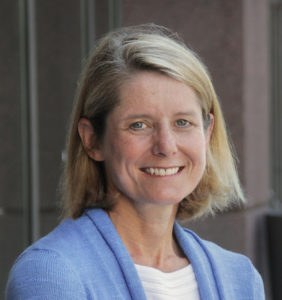
Elizabeth Frankenberg, PhD
Cary C. Boshamer Distinguished Professor, Sociology, UNC Chapel Hill
Director, Carolina Population Center
e.frankenberg@unc.edu
My work focuses on how individuals and families respond to unexpected changes and how government programs and policies can help them adapt. Much of my research is about Indonesia before and after the 2004 Indian Ocean tsunami. I draw on household and community survey data that my colleagues and I have collected over the past 15 years, in combination with high resolution satellite imagery, to investigate how the disaster and subsequent recovery affect health and well-being at the population level. Drawing on this experience, I am leading the development and administration of the DEEPP household surveys in coastal Carolina communities.
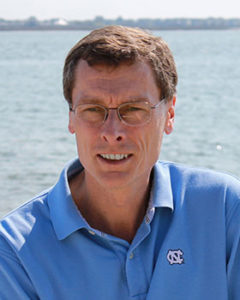
Rick Luettich, ScD
Alumni Distinguished Professor and Director, Institute of Marine Sciences, UNC Chapel Hill
rick_luettich@unc.edu
I have an undergraduate and master’s degree from Georgia Tech and a doctor of science from MIT, all in civil engineering. I serve as the Director of UNC’s Institute of Marine Science, located on the coast in Morehead City, NC. I also serve as the Director of the UNC Center for Natural Hazards Resilience and am the lead Primary Investigator on the Department of Homeland Security’s Coastal Resilience Center of Excellence and on the US IOOS Coastal and Ocean Modeling Testbed. I am also Co-Primary Investigator on the DEEPP Project.
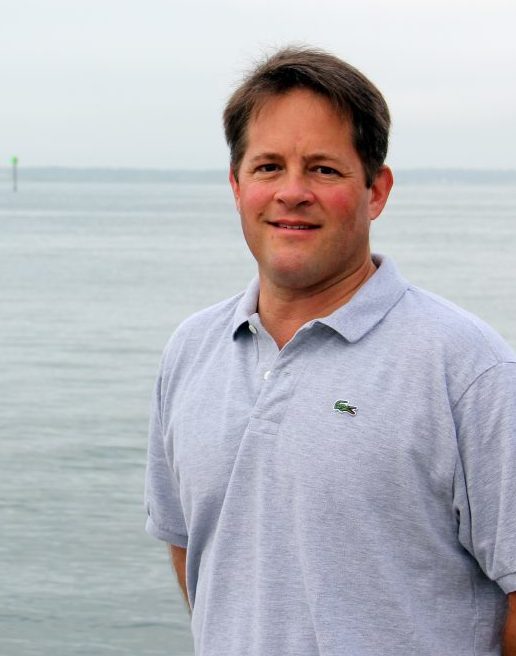
Michael F. Piehler, PhD
Professor, Institute of Marine Sciences and Environmental Sciences and Engineering, UNC Chapel Hill
Director, Institute for the Environment
mpiehler@email.unc.edu
I study microorganisms and microbially mediated processes in coastal land-water interfaces (particularly wetlands) and near-shore waters. The land-water interface is an area of intensive biogeochemical cycling and trophic interactions involving microorganisms. It is also an area of extensive human activity, making the interactions of pollutants and native microbial communities in the land-water interface a significant issue in developed coastal environments. As a Co-Primary Investigator on the DEEPP Project, I am leading the efforts to study the ecological impacts of storms through the forces of wind and surging seawater or the downstream flow of river water.
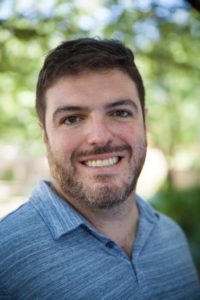
Todd BenDor, PhD
Distinguished Professor of Sustainable Community Design, City and Regional Planning and Institute for the Environment, UNC Chapel Hill
Director, Odum Institute for Research in Social Science
bendor@unc.edu
My research and teaching focus on improving our understanding of the impacts that human activities and development can have on sensitive ecological and environmental systems. My work on the DEEPP team involves combining multiple sources of administrative data to analyze the effect of plans to mitigate the hazard of sea level rise along the North Carolina Coast.
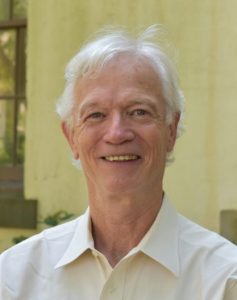
Phil Berke, PhD
Research Professor, City and Regional Planning, UNC Chapel Hill
pberke@email.unc.edu
My work focuses on the relationship between community resilience and urban planning with specific focus on methods, theory, and metrics of local planning and outcomes. I am currently focusing on development of the Plan Integration for Resilience Scorecard. The aim is to better understand interactions among networks of policy institutions, networks of land use and development plans produced by such institutions, and social and physical vulnerability to hazards and climate change. Application of the Scorecard is currently funded by the US Department of Homeland Security and the National Science Foundation to assist cities in the US and the Netherlands to improve urban resilience planning.

Chao Wang, PhD
Postdoctoral Scholar, Earth, Marine, and Environmental Sciences, UNC Chapel Hill
wayne128@email.unc.edu
My research interests lie in bridging the disciplinary perspectives in understanding the eco-hydrological processes and bi-directional interactions and feedbacks at different spatiotemporal scales through integrating multi-source observations and model simulations.
My current research interests, including DEEPP, aims to address following questions:
- How can advanced remote sensing (e.g., UAV, airborne, satellite) tools be used to detect ecohydrology changes?
- What caused these ecohydrology systems to change?
- What are the consequences of these ecohydrology changes?

Cassandra R. Davis, PhD
Research Assistant Professor, Public Policy, UNC Chapel Hill
cnrichar@email.unc.edu
I hold a PhD in Education from UNC Chapel Hill. Within the last four years, I have been the principal investigator on various research evaluations. The most recent of these projects was “Investigating School District Resilience and the Impact of Hurricane Exposure on Student Outcome,” funded by the National Science Foundation. During 2018, I received funding to explore the impacts of Hurricanes Harvey and Matthew on public schools in Texas and North Carolina. Both of these projects represented large-scale qualitative studies that specifically targeted underrepresented students. Building on this work, I bring this expertise to the DEEPP project to improve our understanding of the impact of natural disasters on schools and communities along the NC coast.
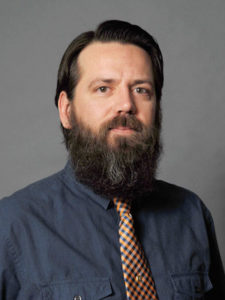
Paul Delamater, PhD
Assistant Professor, Geography, UNC Chapel Hill
pld@email.unc.edu
I am a health geographer with a particular interest in research and teaching relating to spatial components of health care access and utilization as well as disease modelling. I use methods that employ geographic information systems (GIS) and statistical/spatial analysis to better understand population health issues. My research has focused on understanding childhood vaccination, herd immunity, and vaccine-preventable diseases in the United States. Another active area of my research centers on access to health care services, with a focus on integrating evidence-based approaches in health care planning and regulation activities. On the DEEPP team, I focus on how storms and flooding affect the health outcomes of people living in impacted communities.
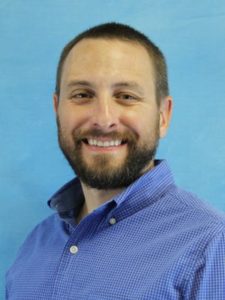
Nathan T. Dollar, Ph.D.
Research Scientist/Project Director, DEEPP Survey, Carolina Population Center, UNC-CH
ntdollar@unc.edu
I am a social demographer whose research lies at the intersection of migration, labor, and population health. I am particularly interested in how all three are influenced by social policy, and how those policies vary geographically. As a native of eastern North Carolina, I have lived through several hurricanes. As such, the DEEPP Project is personal to me and offers an exciting opportunity to produce valuable data we can use to examine the factors that shape how people and places prepare for, are affected by, and recover from extreme weather events. My role on the DEEPP team involves community outreach, managing the administration of the survey, and data cleaning and analysis
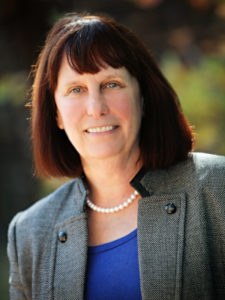
Barbara Entwisle, PhD
Kenan Distinguished Professor, Sociology, UNC Chapel Hill
entwisle@unc.edu
My research focuses on social, natural, and built environments and their consequences for demographic and health outcomes. My work ranges from the study of migration, residential change, and health from a life course perspective in the US to agent-based modelling of migration and other responses to environmental stress in Northeast Thailand. I bring this demographic expertise to the DEEPP team to help develop approaches to predict the effects of extreme events on flood exposures and, in turn, on population size, age, composition, and health.
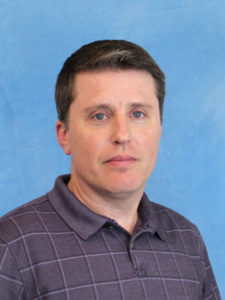
Brian Frizzelle, MA
Director of Research Programming and Spatial Analysis, Carolina Population Center, UNC Chapel Hill
brian_frizzelle@unc.edu
I am a geographer with over two decades of experience in spatial demography. I have collaborated on research across a wide range of academic topics, including demography, land cover dynamics, ecology, anthropology, public health, epidemiology, and education. My role on DEEPP is to develop the spatial data repository that assembles data on risk, vulnerability, and inundation exposure, and to construct exposure measures that triangulate across different sources of data. The goal for this repository is to build a rich and detailed picture of how the population and built and natural infrastructure of Eastern North Carolina is affected by floods.

Miyuki Hino, PhD
Assistant Professor, City and Regional Planning, UNC Chapel Hill
mhino@email.unc.edu
My research examines the linkages between climate hazards, governance, and public policy to drive effective and equitable adaptation to climate change. Recent work has focused on the impacts of sea level rise, the effects of flood risk on property markets, and the use of managed retreat in adapting to climate change. I received a PhD in Environment and Resources from Stanford University and a BS in Chemical Engineering from Yale University. My work with DEEPP focuses on the effect of state and local policies to mitigate increasing risk of flood hazards along the NC coast.
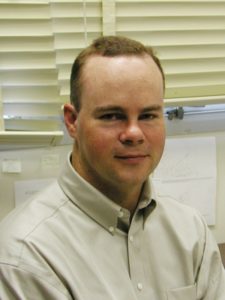
Ted Mouw, PhD
Professor, Sociology, UNC Chapel Hill
tedmouw@email.unc.edu
I am a sociologist who studies labor markets, immigration, and social networks. My current research involves the mobility of low-wage workers, the economic incorporation of immigrants, and methods to collect samples from rare or hidden populations using social networks. I draw on my expertise collecting and analyzing various sources of administrative and survey data to aid the DEEPP team in our efforts to conduct a survey of households, individuals, and community informants, and to study the effects of policies to mitigate the risk of flooding.
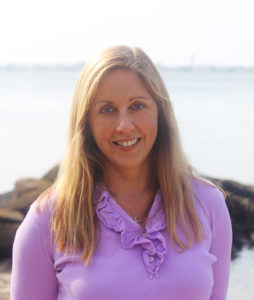
Rachel Noble, PhD
Mary and Watts Hill Jr. Distinguished Professor, Institute of Marine Sciences, UNC Chapel Hill
rtnoble@email.unc.edu
My research bridges environmental microbiology and marine microbial ecology. A main thread of my work is the application of novel molecular techniques for applied and basic science. I have developed a range of rapid water quality test methods, including for E. coli, Enterococcus, and Vibrio species, and I study the dynamics of microbial contaminants contributed through stormwater runoff to high priority recreational and shellfish harvesting waters. My expertise in microbial contaminants bolsters the DEEPP efforts to study the effects of storms and flooding on coastal ecosystems and the health of community members.
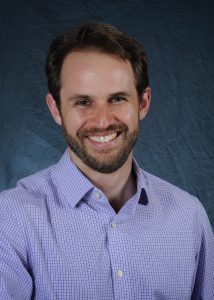
Tamlin M. Pavelsky, PhD
Professor, Earth, Marine, and Environmental Sciences, UNC Chapel Hill
pavelsky@unc.edu
My research interests are focused on the intersections between hydrology, satellite remote sensing, and climate change. I work on scales ranging from the entire globe to a single large wetland, with a special interest in Arctic and Subarctic regions. My current research projects, including DEEPP, aim to address three questions:
- How can satellite remote sensing be used to understand the storage and movement of surface water?
- How accurately can regional climate models simulate hydrologic processes?
- How is anthropogenic warming impacting Arctic hydrologic and climatic systems?
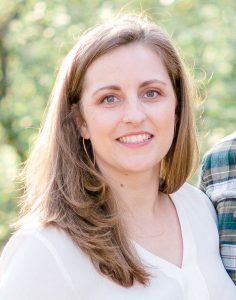
Antonia Sebastian, PhD
Assistant Professor, Earth, Marine, and Environmental Sciences, UNC Chapel Hill
asebastian@unc.edu
Research in my lab focuses on understanding dynamic changes in watershed hydrology and their influences on flood hazards under rapidly changing anthropogenic conditions. We also work on topics related to risk quantification, visualization, and communication. Much of our research is computational in nature, utilizing watershed-scale hydrologic and hydraulic models, as well as geographic information systems (GIS) and spatial analytical and statistical tools. My current projects aim to address three primary questions:
- How are changes in development patterns and anthropogenic warming impacting flood risks in urban and coastal communities?
- How can physical, analytical and statistical models be leveraged to better predict flood hazards and risks across multiple scales?
- How can current and future flood risks be managed through combinations of structural and non-structural solutions?
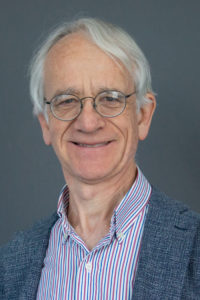
Richard Smith, PhD
Professor, Biostatistics, UNC Chapel Hill
Mark L. Reed III Distinguished Professor, Statistics and Operations Research
Director, the Statistical and Applied Mathematical Sciences Institute
rls@email.unc.edu
My principal areas of research are spatial statistics, time series analysis, extreme value theory and Bayesian statistics. Specific areas of expertise include spatial and time series modelling of environmental pollutants, the health effects of atmospheric pollution, the statistics of global climate change, and extreme values in insurance and finance.

Conghe Song, PhD
Professor, Geography, UNC Chapel Hill
csong@email.unc.edu
I conduct research with remotely sensed data, household surveys, and ecological models to understand how land surface is changing, why it is changing and what the associated social-ecological consequences of these changes are. I integrate remote sensing and ecological models to estimate the land surface carbon and water dynamics as a result of land-cover/land-use change in the context of climate change. I also collect and analyze household survey data to understand the driving forces and the socioeconomic consequences of land-cover/land-use change.
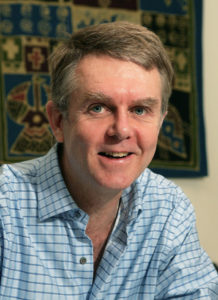
Duncan Thomas, PhD
Norb F. Schaefer Distinguished Professor of International Studies
Professor of Economics, Global Health and Public Policy, Economics, Duke University
dthomas@econ.duke.edu
I investigate the inter-relationships between health, human capital, and socioeconomic status with a focus on the roles that individual, family, and community factors play in improving levels of health and well-being across the globe. Much of this work highlights resource allocation and decision-making within households and families. My research uses data from large-scale population based longitudinal surveys that I have designed and fielded in collaboration with Elizabeth Frankenberg and other colleagues in the US, Indonesia and Mexico. These include the Indonesia Family Life Survey (IFLS), the Work and Iron Status Evaluation (WISE), the Study of the Tsunami Aftermath and Recovery (STAR) and the Mexican Family Life Survey (MxFLS) and now the Dynamics of Extreme Events, People, and Places (DEEPP).
Graduate and Undergraduate Students
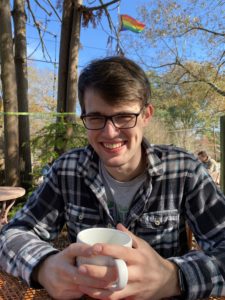
Will Burnham
Undergraduate Student, double major in Biology and Geography, UNC Chapel Hill
wcb31@live.unc.edu
I am an undergraduate student majoring in Biology and Geography, with a minor in Medical Anthropology. I am particularly interested in the impact of climate change on human health and social structures, especially in at-risk locations like Eastern North Carolina. My involvement in the DEEPP project is mostly through data entry, although I hope to become more involved as an interviewer or in other ways in the future.

Helena Garcia
PhD Student, Environment, Ecology, and Energy Program (E3P), UNC Chapel Hill
hmgarcia@unc.edu
I am a PhD student in the Environment, Ecology and Energy (E3P) Program and am interested in research that lies at the intersection of natural hazards resilience and planning for socially equitable climate adaptation. I spent part of my childhood in Guayaquil, Ecuador where I witnessed the different impacts that severe flooding events can have on coastal and urban populations. I am excited to explore how my DEEPP work on plan integration can provide insights into how planners account for flood hazard risks and social vulnerability in coastal North Carolina communities. I am also looking forward to working with the DEEPP survey team to learn more about household-level perspectives on previous hurricanes in North Carolina and how individuals may be planning for future events.
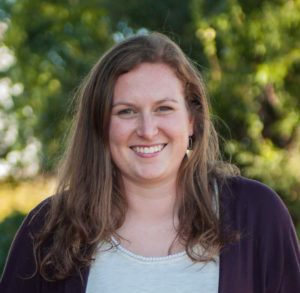
Lauren Grimley, MS
PhD Student, Earth, Marine, and Environmental Sciences, UNC Chapel Hill
lauren.grimley@unc.edu
I am a PhD student in the Earth, Marine and Environmental Sciences (EMES) Department and my research is focused on quantifying the impacts of extreme and chronic floods in communities located at the river-coastal interface in eastern North Carolina. I use environmental and socio-economic data to build numerical and analytical models that can be used to predict flood hazards and risks. My work aims at connecting the physical and social aspects of flooding to ensure that the benefits and safety provided by hazard management and climate adaptation strategies are equitably distributed now and into the future.
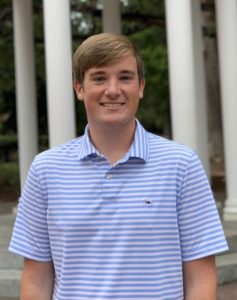
Jacob Hunter
Undergraduate Student, double major in Political Science and Public Policy, UNC Chapel Hill
jacobeh@live.unc.edu
I am an undergraduate student double majoring in Political Science and Public Policy and minoring in Music. I am particularly interested in DEEPP as I am from rural, eastern North Carolina and have personally experienced the impact of flooding in these areas because of hurricanes. I work in Data Entry for the DEEPP project am grateful to have the opportunity to learn more about the social science research process.

Rene Iwo
PhD Student, Sociology, UNC Chapel Hill
rene.iwo@unc.edu
My own work focuses on families and children around the world, mainly about how they see themselves at the present and plan for their futures. I grew up in Jakarta, Indonesia, a city of 35 million people that sees severe flooding every year. So the topic of DEEPP is very important and personal to me, and it will be interesting to see what people from Jakarta and North Carolina can learn from each other. As a research assistant on this project, I help with the household surveys and communications with the public.
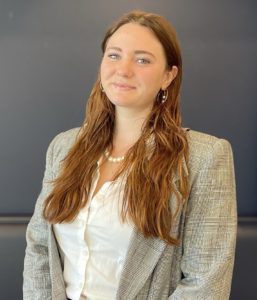
Natalie Johnson
Undergraduate Student, double major in Political Science and Economics, UNC Chapel Hill
natgrace@live.unc.edu
I am an undergraduate student and Carolina Covenant Scholar double majoring in Political Science and Economics and minoring in Public Policy. I am especially grateful to be able to pursue research related to my interests around health economics, public policy, and public health. As a Research Assistant on the project, I complete household surveys with residents living in Eastern North Carolina to better understand how extreme events like hurricanes impact populations and health outcomes. Additionally, I help manage social media content and communications with the public.

Hailey Korzekwinski
Undergraduate Student, double major in Economics and Environmental Studies, UNC Chapel Hill
haileyko@live.unc.edu
I am an undergraduate student double majoring in Economics and Environmental Studies, with a minor in Social and Economic Justice. As a student, I am interested in socio-economic issues, as well as labor economics. This past semester, I participated in a capstone that focused on topics related to flood resilience in the Duffyfield community in New Bern, NC. Completing this project is what interested me in working with DEEPP, and I hope to grow my knowledge of the effects of flooding in coastal Carolina communities.
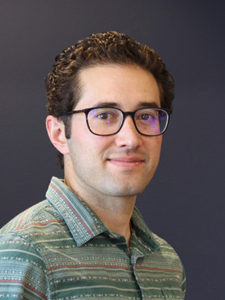
Nikhil Kothegal, MPH
PhD Student, Environmental Sciences and Engineering, UNC Chapel Hill
kothegal@live.unc.edu
I am interested in health-related research connecting areas of environmental health sciences, epidemiology, and social sciences, with an emphasis on environmental justice and community-driven research approaches. I previously held a 3-year fellowship at the CDC where I worked on household-based HIV surveys in sub-Saharan Africa. I plan to apply what I learned from that experience to help with the DEEPP survey.
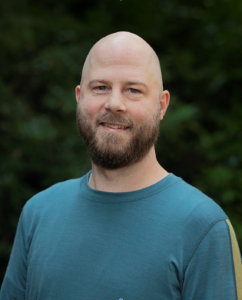
John Radcliff
PhD Student, Marine Sciences, UNC Chapel Hill
My research involves coastal modeling using the ADCIRC model with a focus on Hurricane Florence, which impacted North Carolina in 2018 with record storm surge, precipitation, and flooding. The goal of this work is to learn from a hindcast approach, gaining insights that improve our understanding of coastal hydrodynamic processes and leading to model refinements for improved forecasting. Accurate hindcasting of extreme events like Florence will assist in the DEEPP project goals of mapping exposures and understanding impacts to eastern North Carolinians.

Jacqueline Ruiz
Undergraduate Student, Public Policy, UNC Chapel Hill
jackie26@email.unc.edu
I am an undergraduate student at UNC Chapel Hill studying Public Policy and Social and Economic Justice. As part of the DEEPP team, I interview people on hurricane effects within their communities, homes, and financial status. Additionally, I assist in entering data collected from the field interviews. I really enjoy working on the DEEPP project as it combines my interests of natural disasters, climate phenomena, and policy recommendations in crisis management.

Anne Smiley
PhD Student, Marine Sciences, UNC Chapel Hill
ahsmiley@live.unc.edu
My research is focused on estuarine nutrient dynamics. I use a combination of geographic information systems (GIS) and analytical chemistry techniques to assess anthropogenic impacts on distributions of nutrient sources and sinks. I also aim to understand the effects of chronic and acute disturbances on nutrient regulation processes. My work on the DEEPP project centers around natural systems. In particular, I explore urbanization impacts on habitat distributions, biogeochemical processes, and overall provisions of ecosystem services.
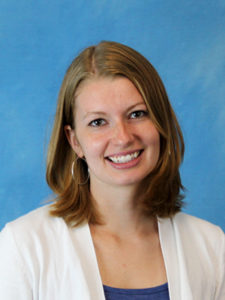
Bethany Stoutamire, MA
PhD Student, Sociology, UNC Chapel Hill
stoutbet@live.unc.edu
I am interested in family formation and survey design. Before joining the DEEPP Project, I helped work on a survey to examine the role housing design played in aging in place in South Dakota. As a college student, I also worked in a lab to examine how stress impacts health outcomes. I’m excited to work on this project. I briefly lived in Goldsboro, NC, when I was younger, so I’m excited to get to see new — and different — parts of the state.
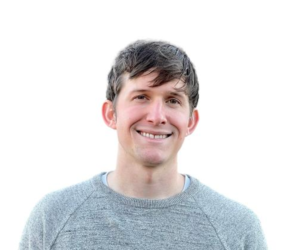
Brian White, MA
PhD Student, Statistics and Operations Research, UNC Chapel Hill
My work on the DEEPP project is motivated by two questions. First, how have sea-level extremes along the Atlantic coast varied over space and time? Second, how will these patterns evolve under different climate change scenarios? To answer these questions, I’ve been developing a statistical model using tools from extreme value theory, spatial statistics, and oceanography. To learn more, visit my research page briannathanwhite.github.io/research.

